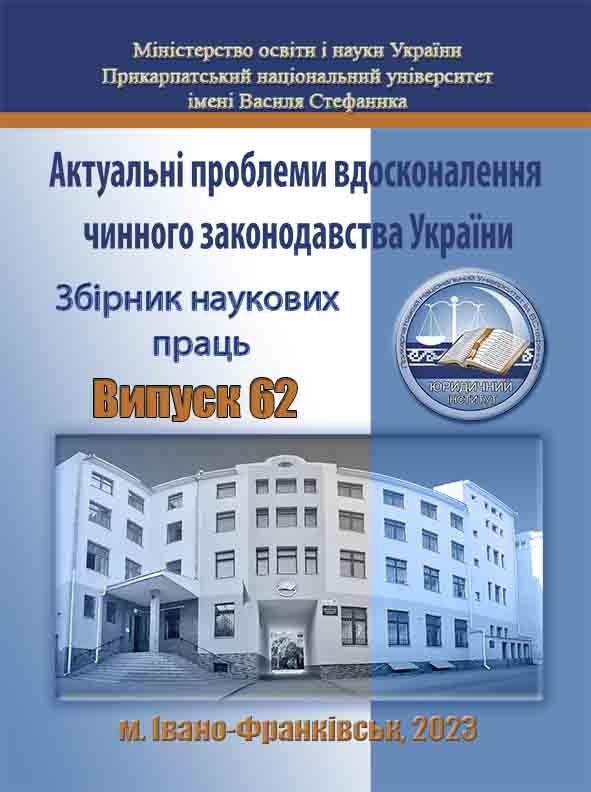Peculiarities of interpretation of international treaties in the national legal system
DOI:
https://doi.org/10.15330/apiclu.62.4.36-4.43Keywords:
language of the contract, subject of interpretation, multilingual contracts, authentic interpretation, authenticity of the text of the contractAbstract
The article analyzes the peculiarities of the interpretation of international treaties in the national legal system, defines the actual problems of implementation of the interpretation and ways to overcome them. Ukraine has joined a number of important international conventions that contain fundamental norms, in particular, regarding human rights. These norms are constantly developing and improving both through the practice of international judicial bodies and through the practice of foreign courts, whose decisions may contain important concepts. Therefore, Ukrainian judicial authorities should follow and apply modern trends and concepts of interpretation, which should lead to ensuring the proper protection of human rights.
Without the correct interpretation of an international agreement, its correct implementation is impossible. The task of interpreting an international treaty is to clarify what the parties agreed upon at the time of concluding the treaty, and to clarify the agreed will of the parties embodied in the provisions of the treaty. Accordingly, an incorrect interpretation of an international treaty would violate the right to a fair trial.
In Ukraine, the interpretation of an international treaty is carried out by the Constitutional Court of Ukraine and courts of general competence. The first feature is the use by the Constitutional Court of Ukraine to argue its positions not only of the norms of international treaties, but also of generally recognized principles and norms of international law. This practice is special in relation to the practice of courts of general jurisdiction and arbitration courts. This vagueness and incomprehensibility requires interpretation and supplementation in order to establish and guarantee the principle of legal certainty as part of the rule of law. And such an interpretation should reflect the spirit of the times and be based on modern methods and approaches that are rarely found in the decisions of national courts.
On the basis of the conducted research, conclusions were made regarding the solution of the problems of interpretation of international treaties in the national legal system. The interpretation of treaties should be carried out primarily in accordance with the basic principles of international law. The interpretation must be conscientious, honest, and have common sense. The main object of interpretation is the text of the contract, including all its parts, that is, the preamble, annexes, as well as any agreement related to the contract, which was reached between all participants in connection with the conclusion of the contract.


